Dogs are known to be man’s best friend, but when it comes to what they can and cannot eat, many of us are in the dark.
Can dogs eat shrimp tails? This is a question that many dog owners have asked.
If you’re curious about the answer, the good news is that shrimp tails can be a healthy option for your fur baby, provided they are cooked and not raw.
Shrimp tails provide an excellent source of protein and other essential nutrients, but they should only be fed in moderation.
Before feeding your pup shrimp tails, I will look at what you need to know, including the potential risks and benefits.
The nutritional content of shrimp tails
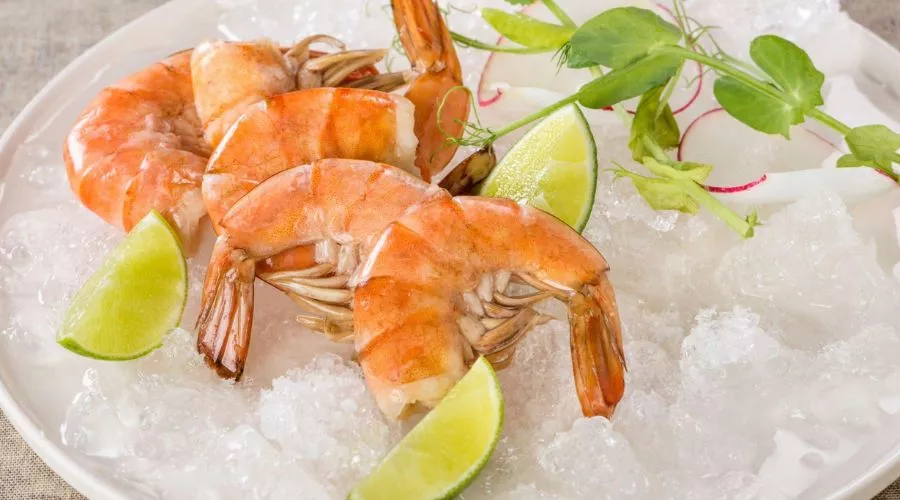
Shrimp is low in fat and contain zero cholesterol.
They are also an excellent source of selenium and vitamin B 12, essential for reducing inflammation and maintaining a balanced metabolism. Including shrimp tails as part of your dog’s diet can help keep a healthy heart and reduce the risk of heart disease.
Shrimp are also rich in zinc, which is crucial for proper immune function and wound healing.
Zinc deficiency is common in dogs as they cannot produce it in their bodies as humans do, so they need to rely on dietary sources to meet their needs.
Shrimp tails also contain iron, essential for regulating metabolism and red blood cell production.
Potential risks of feeding shrimp tails to dogs
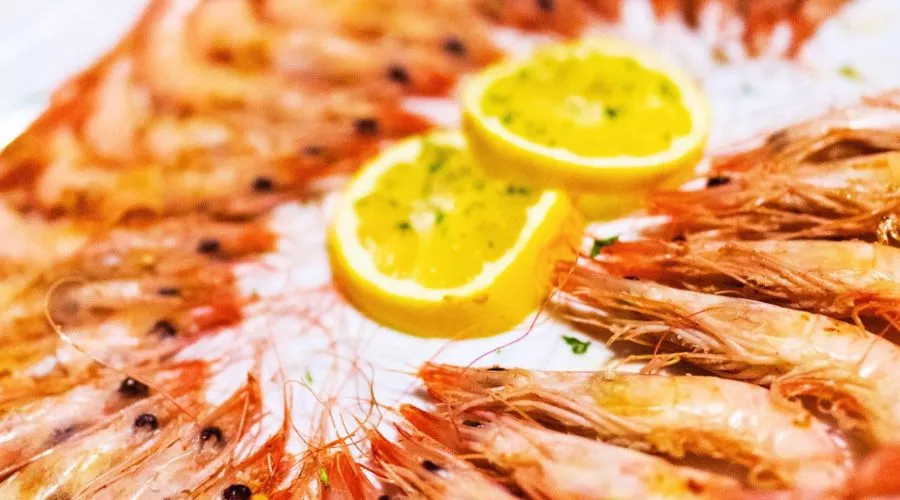
While shrimp tails are nutritious for dogs, they can also be toxic if consumed in large quantities.
Large amounts of Vitamin B 12 can be harmful to dogs and cause an increase in the risk for anemia, as well as neurological symptoms like tremors, seizures, and even death.
Furthermore, a diet high in Vitamin B 12 and low in iron can lead to macrocytic anemia, which can be fatal if left untreated.
Shrimp tails also contain a small amount of mercury, which harms humans and dogs.
Dogs are more sensitive to the adverse effects of mercury than humans and can experience symptoms like muscle tremors, anxiety, and a weakened immune system.
Read More About shrimp tails ↗
Benefits of shrimp tails for dogs
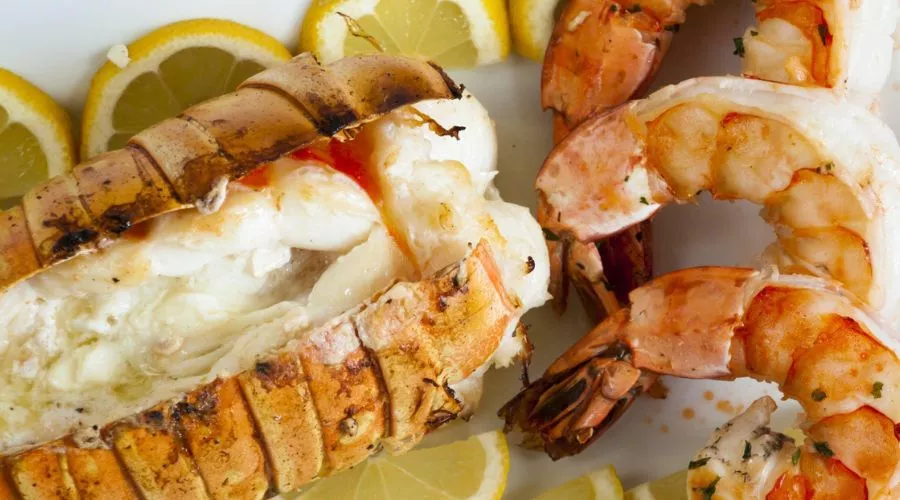
As previously mentioned, shrimp tails are a good source of essential nutrients like iron and zinc.
These minerals can help regulate metabolism and support robust immune systems. Iron is essential for puppies as it is essential for proper red blood cell production.
Shrimp tails are also low-fat and can help overweight dogs shed excess pounds. Furthermore, shrimp tails contain selenium, essential for regulating metabolism and reducing inflammation.
This nutrient can also prevent oxidative damage to cells caused by free radicals, leading to disease and tissue damage.
Preparation of shrimp tails for dogs
Shrimp tails can be served cooked or raw, but it is important to note that feeding your pup raw shrimp tails can be dangerous.
Raw shrimp can contain harmful bacteria, so it is best to cook shrimp tails before feeding them to your dog.
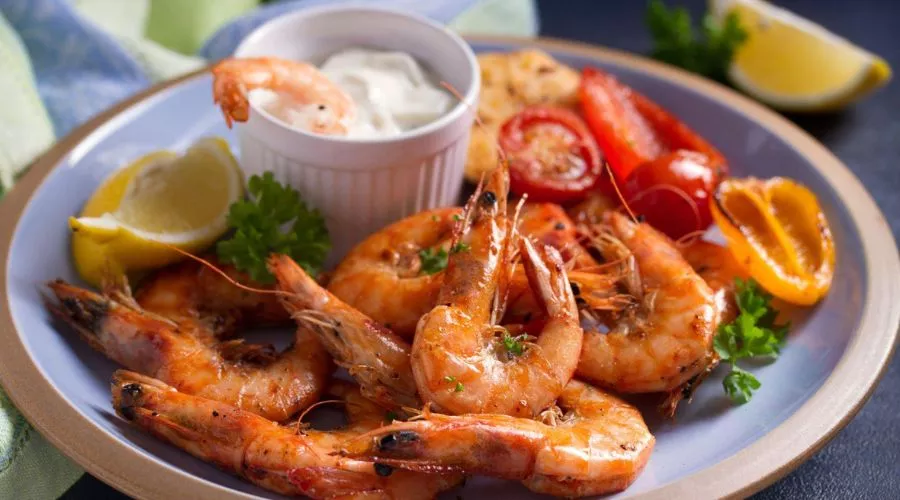
Doing so will significantly reduce the risk of food poisoning. Shrimp tails can be served in various ways, including in soups and stews, fried, or baked.
Feeding shrimp tails to puppies
It is best to avoid feeding shrimp tails to puppies under six months of age, as the high amount of Vitamin B 12 can harm their developing systems.

If you feed shrimp tails to an older dog, monitoring their diet is vital to avoid Vitamin B 12 toxicity.
Owners should also watch their dogs for symptoms of mercury poisoning, such as muscle tremors, as ingesting large amounts of shrimp tails can increase the risk of mercury toxicity.
Choking hazard of shrimp tails for dogs
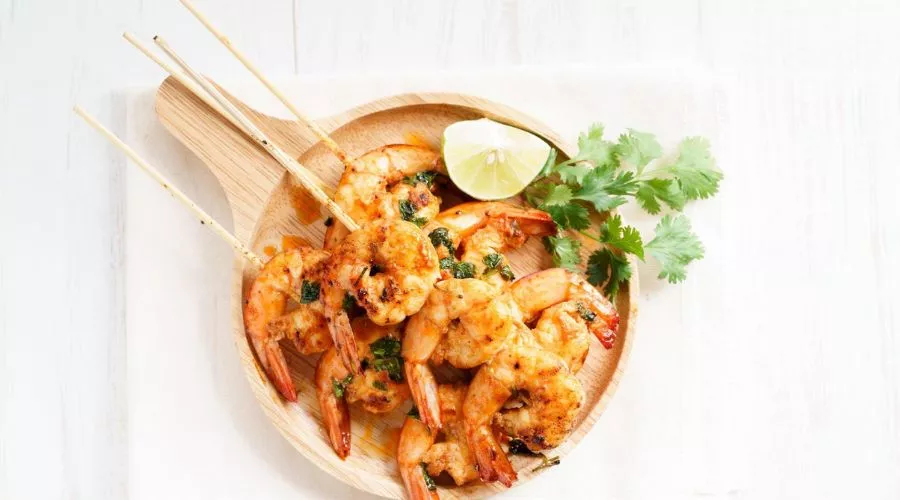
Shrimp tails can be a choking hazard for dogs and should be monitored accordingly.
If your pup does not chew its food properly, the shrimp tails could be a choking hazard. Shrimp tails should be chopped finely or served in tiny pieces to avoid this risk.
Other human foods dogs should not eat.
Many human foods are toxic to dogs, including shrimp tails, garlic, grapes, and macadamia nuts.

These foods contain high amounts of cyanide, which is toxic and can cause vomiting, tremors, seizures, and even death in dogs.
Alternative sources of protein for dogs
The best protein sources for dogs, including shrimp tails, are those high in the amino acid arginine.

Canine-friendly foods high in arginine include eggs, chicken, fish skins, milk, and cheese.
What happens if my dog eats shrimp shells?
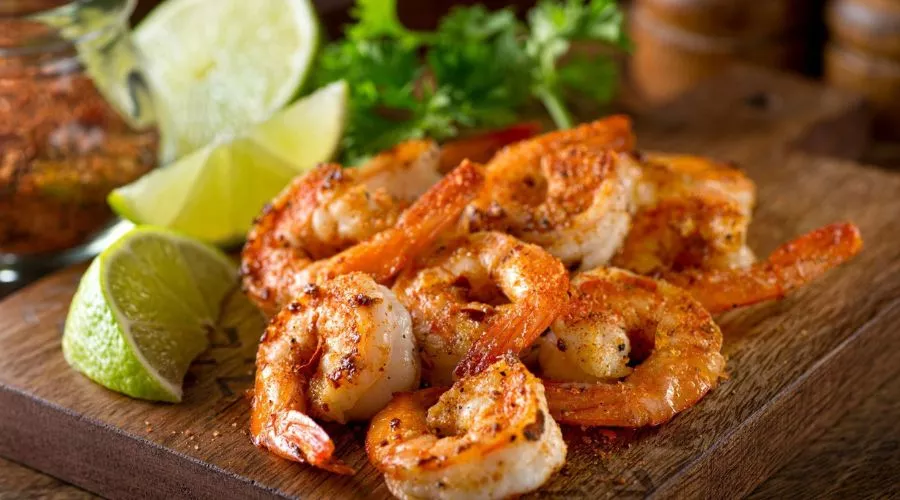
.Shrimp shells are dangerous for both dogs and cats to eat. They can be very toxic if ingested and cause stomach pain and diarrhea. They may also obstruct your pet’s intestinal tract if they are not passed through.
If you notice your pet eating shrimp shells, it is essential to try to remove them from their mouth as quickly as possible.
If the shell is already broken down, you can still try to remove pieces from their mouth.
It is also essential to monitor your pet for any symptoms of illness following ingestion of shrimp shells, such as nausea or vomiting.
If you are concerned about your pet’s health after they have ingested shrimp shells, you should contact your veterinarian.
FAQS
Are shrimp tails toxic to dogs?
Although the tails of shrimp may seem harmless, they can be toxic to dogs. Symptoms of toxicity include vomiting, diarrhea, and abdominal pain. The poisonous ingredient is an amino acid called cysteine. It can cause damage to the kidneys and liver.
It is best to avoid giving your dog shrimp tails, as well as the heads and shells. Instead, choose a lower-protein food that your dog enjoys. It will improve his overall health and well-being.
Is it OK for dogs to eat shrimp?
First, it is not recommended to feed dogs seafood, as it is high in fat and low in protein and may contribute to health issues, including weight gain and liver disease.
While it is safe to give your dog cooked shrimp, their small mouths and teeth make chewing difficult, and they may end up swallowing large pieces, which could cause blockages or stomach pain. Additionally, shrimp consumption is highly associated with the development of illness or death in dogs, so it’s best to avoid this food if possible.
Are shrimp tails digestible?
No, shrimp tails are not digestible. They contain little nutritional value and are filled with a thick shell protecting the soft tissue beneath. However, some people may be allergic or sensitive to shrimp tails, so it’s best to avoid them if you have a history of digestive issues.






